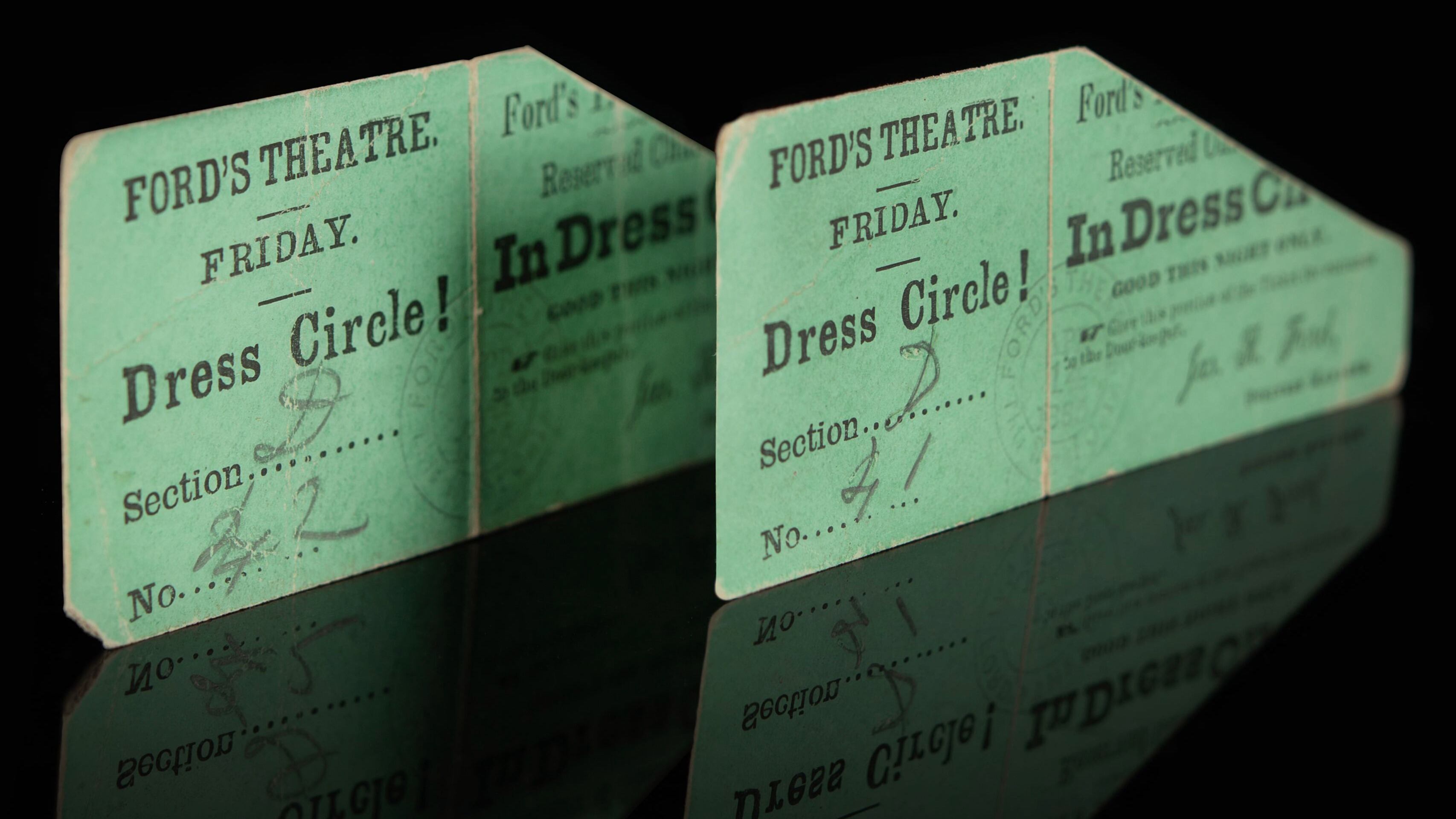A pair of front-row balcony tickets to Ford’s Theatre on April 14, 1865 — the night President Abraham Lincoln was assassinated by John Wilkes Booth — sold at auction for $262,500, according to a Boston-based auction house.
The tickets are stamped with the date, “Ford’s Theatre, APR 14, 1865, This Night Only.” They bear the left-side imprint “Ford’s Theatre, Friday, Dress Circle!” and are filled out in pencil with section (“D”) and seat numbers “41″ and “42”, according to RR Auction.
The handwritten seating assignments and the circular April 14th-dated stamp match those found on other known authentic tickets, including a used ticket stub in the collection of Harvard University’s Houghton Library, auction officials said.
The Harvard stub, which consists of just the left half of the ticket, is the only other used April 14th Ford’s Theatre ticket known to still exist, with similar seat assignments filled out in pencil and a stamp placed identically to the ones on the tickets auctioned off Saturday.
Just after 10:00 p.m., during the third act of the play “Our American Cousin,” Booth entered the presidential box at the theater in Washington, D.C., and fatally shot Lincoln.
As Lincoln slumped forward in his seat, Booth jumped onto the stage and fled out a back door. The stricken president was examined by a doctor in the audience and carried across the street to the Petersen House, where he died early the next morning. Booth evaded capture for 12 days but was eventually tracked down at a Virginia farm and shot.
Also sold at Saturday's auction was a Lincoln-signed first edition of the Lincoln-Douglas debates, which fetched nearly $594,000.









